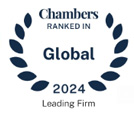The financial sector has been described as sound, and banks have plenty of liquid assets. The arrival of several Nigerian banks (increasing the number to 14) has increased competition, while the microfinance sector is also expanding. Obtaining credit is relatively easy, and interest rates of between 18% and 24% are considered average for the region.
Starting a business is relatively easy, and a company can be registered within one week, although the high start-up cost has been criticised. Costs include a tax deposit of approximately USD500, a pay roll tax of approximately USD1,500 per annum for each non-Gambian employee, and incorporation fees based on capital ranging from USD200 to USD2,500. This is countered by the unregulated capital requirement and flexibility. It is ranked 146 out of 183 in The World Bank’s ‘Doing Business’ indicators for 2011.
New businesses that add value may apply for a special investment certificate which can grant them tax exemptions for up to five years.
Great improvements have been made in infrastructural development over the last few years, and the national power grid has been extended to many parts of urban areas. There is one port and one international airport, and access to both is relatively good. While the road network is mainly around the capital and coastal areas, it is in the process of being extended to the south and north banks of the Gambia River, which bisects the country.
Although the country is a net importer of food and the main diet is rice and other grains common in West Africa, there is a major drive towards self-sufficiency in rice production, and record harvests have been declared in the last year.
The country’s immigration laws are quite strict and entry visas are required from non-ECOWAS and non-Commonwealth countries. There are significant numbers of foreigners engaged in business, mostly in the trade, tourism and export sectors. Non-Gambians may own land, and ownership of agricultural or industrial land or for tourism related activities by non-Gambians is not restricted.



